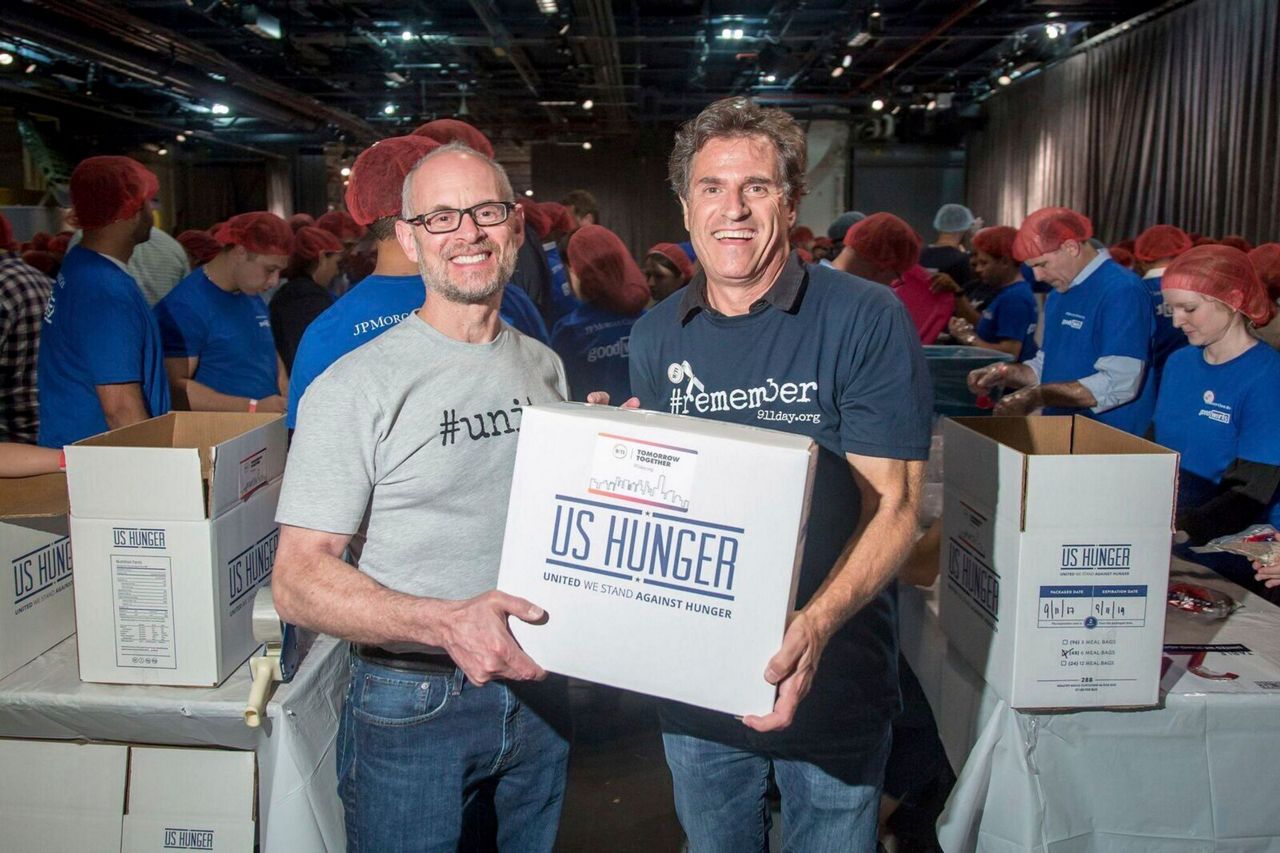For years, David Paine and Jay Winuk have wanted to turn 9/11 into something positive, as counterintuitive as that might sound.
The two co-founders of 9/11 Day, who successfully lobbied the government to officially rename the day September 11 National Day of Service & Remembrance, have encouraged millions to commemorate the day with volunteerism. To mark the 20th anniversary of the terrorist attacks, whose victims included Winuk’s brother Glenn, Paine and Winuk are expanding their efforts with a CNN special, “Shine a Light,” airing on Sept. 11.
The tribute to those affected by 9/11, Paine said, will also serve as “a telethon, except instead of asking people to donate money we’re asking them to donate pledges of good deeds."
The Associated Press spoke recently with Paine and Winuk about how the meaning of 9/11 has changed and what this year’s anniversary means to them. The interview was edited for clarity and length.
___
AP: With all the crises in the world today, does 9/11 still get the attention it is due?
Paine: Despite COVID, despite the events unfolding in Afghanistan, which are very important to a lot of us, despite the hurricane, despite all the extraordinary things that go on in our lives — some very tragic — 9/11 is sort of that moment when we get to stop and think about what’s most important in life, which is each other.
Winuk: And the lessons learned in the aftermath of 9/11 can be applied right now to the situation that our nation is in. In some ways, the 20th anniversary is coming at a really important time.
Paine: People want a sense of togetherness and unity. That’s really driving a lot of the growing interest particularly in our observance.
___
AP: Unity isn’t something we see a lot in America right now.
Paine: I had an epiphany following 9/11: We’re not really divided. We just think we are. Division is really a disease of the mind because when you see something like 9/11 happen, it connects us to the truly authentic part within each one of us — that innate state of unitedness.
___
AP: Finding something positive in 9/11 has been important to you.
Winuk: There was, of course, no escaping the tragedy of it. But you couldn’t help but notice the way people came together and the way everybody wanted to pitch in whatever they could. I had never experienced that phenomenon before. We all hoped it would last forever, but everybody eventually gets back to their lives. When we first began this in 2002, we didn’t want the remnants of 9/11 to just be about all the bad because there was good — the way we all focused on our common humanity. That was the genesis of this: Let’s try to establish a ritual in this country that, at least on this one day a year, we rekindle that spirit and we come together because there’s always going to be people in need. There’s always a way for people to be productive if we work together. Let’s celebrate our differences instead of using them to divide. It’s what makes this country great.
___
AP: Why did you want to the CNN special this year?
Paine: We wanted a partnership that would help the 9/11 community tell its own story through its own voices in a truly authentic way.
Winuk: David and I have been doing this for 20 years now, and we’re never less than overwhelmed by what we’re exposed to. It doesn’t get old. It gets fresher and fresher. It’s more and more relevant. It’s more and more important.
___
AP: How are you going to mark 9/11 this year?
Winuk: We’ll spend a good part of the day on the Intrepid (Sea, Air and Space Museum, where) we’ll be bringing together a few thousand people — socially distanced because of the pandemic — to pack thousands and thousands of meals again, as we do every year. We’re doing that in 10 cities around the country. For me, personally, I always try to finish 9/11 — even if it’s 2 o’clock in the morning — at the Firefighters Memorial across from Ground Zero, which my brother’s law firm funded and worked closely with the FDNY to create it as a memorial. It’s amazing to go by there late at night, especially on 9/11 and candles are lit and people are gathered around.
Paine: This will be the first year I am back in New York for 9/11 in probably four or five years. I typically have gone to other cities where we staged these projects just to be in Dallas or Phoenix or different places to see how they all feel, which is fascinating. You don’t have to be from New York or the Washington, D.C., area to understand what 9/11 was. In fact, I think so many people throughout the nation participate because for them, 9/11 is very much unfinished business. It isn’t owned by the terrorists that killed all these people. It’s our day, and we’re taking it back. We want to demonstrate that we can be sad, but we can also be resilient.
___
The Associated Press receives support from the Lilly Endowment for coverage of philanthropy and nonprofits. The AP is solely responsible for all content. For all of AP’s philanthropy coverage, visit https://apnews.com/hub/philanthropy.
Copyright 2021 The Associated Press. All rights reserved. This material may not be published, broadcast, rewritten or redistributed without permission.




